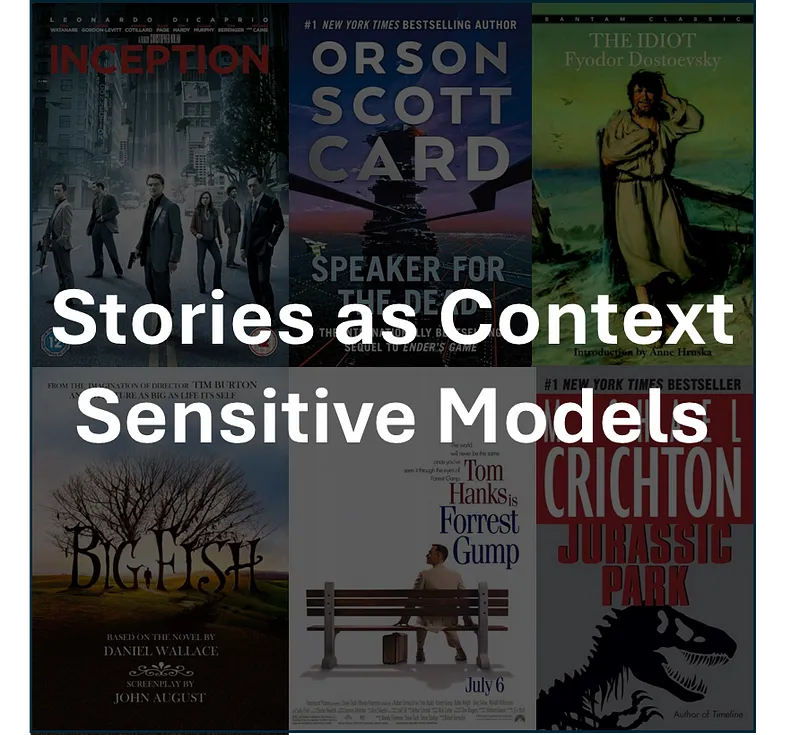Stories as Context Sensitive Models
Oct 10, 2024
After more than a decade of studying psychology, I often find myself reading a great book or watching a movie and thinking, “This author understands people way better than I do.”
Interpret that statement as you wish–as praise for great authors, an indictment of psychology as a field, or even a personal critique of my own failures as a psychologist. All of these interpretations likely hold some truth. But there is another idea that just won’t quite leave me alone. An idea that irritates me, and which I nevertheless find quite plausible. The idea is this; that as a medium, stories are just better than psychological theory.
This isn’t to say that stories are always superior to scientific research. We couldn’t have landed on the moon through storytelling alone, and I’m sure stories won’t unlock all the mysteries of the mind. But there is something special about what stories can do — something that scientific models seem to fall short of. The question I seek to answer is the following: What can stories offer that research cannot? And more specifically, what do they offer that psychological theories cannot?
There might not be a single answer, but we can start by asking a question posed by economist Tyler Cowen in 2005: “Is a novel a model?”


